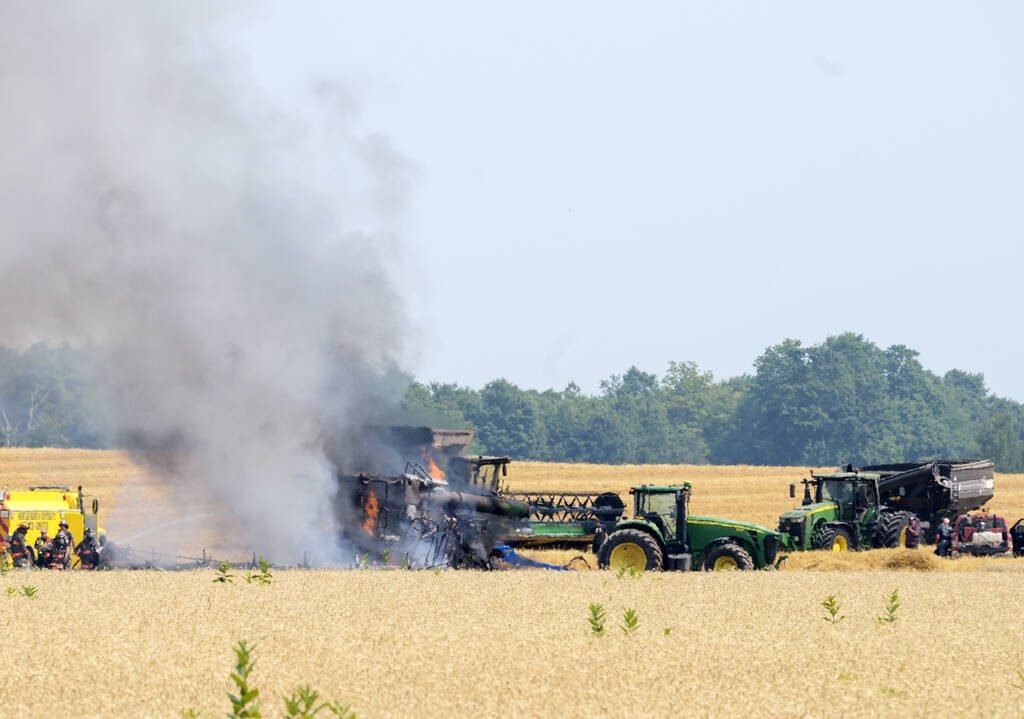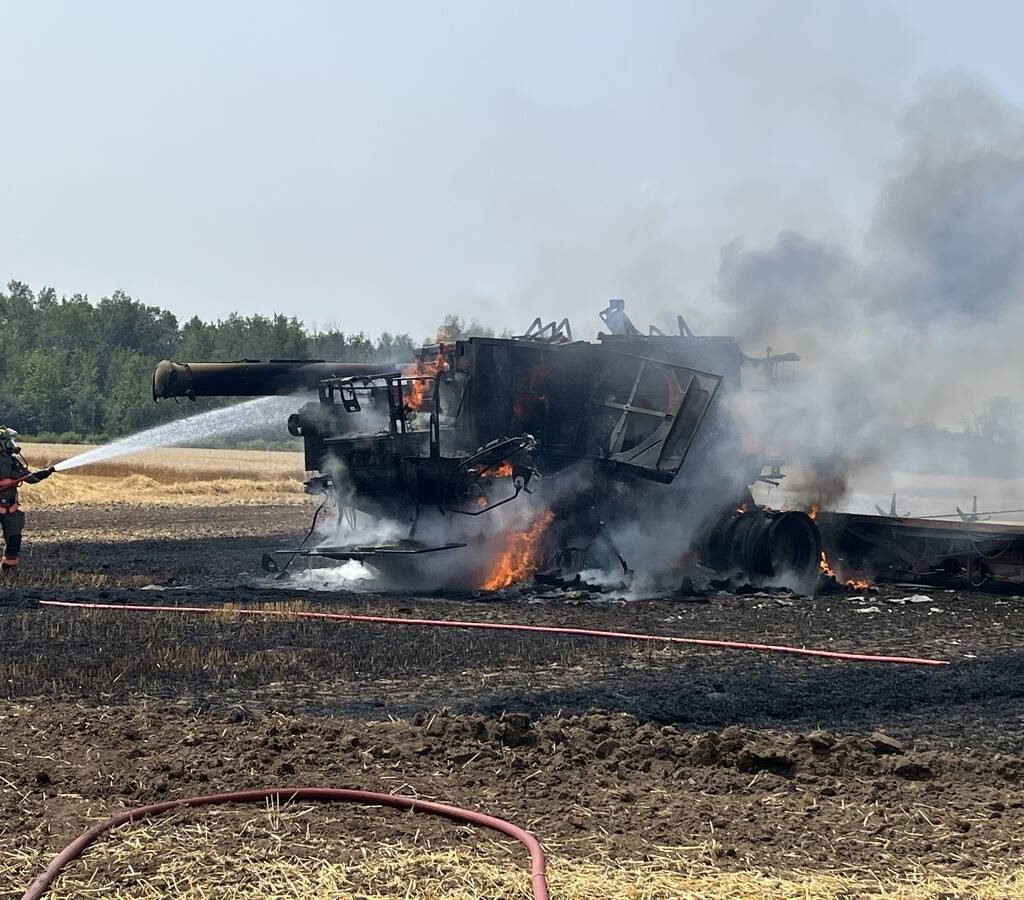Dry temperatures across the province have sparked a rash of agricultural fires.
On Aug. 5, an agricultural fire was reported just outside Shelburne, while earlier in the week a combine harvester caught fire near the Grand River Raceway outside Elora.
Why it matters: Though agricultural fires are not a new phenomenon, prolonged drought conditions on a more consistent basis are increasing their frequency.
Jeff McArthur, director of emergency services and fire chief of the Southwold, Dutton Dunwich and West Elgin Fire Departments, says this year his team has had to respond to several fires this year, adding that conditions are becoming drier.
He notes that wheat stubble and field fires are often caused by overheated equipment bearings or hot vehicle exhaust from pickup trucks.
McArthur adds that rural departments like his have outfitted their teams with the necessary equipment to quickly extinguish these types of fires.
“Several fire departments, including Southwold, have apparatus (fire trucks) that can pump water from a bumper-mounted monitor/nozzle while driving at low speeds to efficiently contain and extinguish field fires. Fire hoses and water extinguishers are also used,” he said.
He advises farmers that there are steps that can be taken to mitigate the risk of a fire occurring, including making sure that equipment is properly maintained.
“Avoid driving pickups and passenger vehicles in the field. Have fire extinguishers on all equipment, and have all family members and employees trained on their use,” he said, adding that some farmers may want to consider having water wagons or trucks at the ready during harvest time.
He adds that having tillage equipment ready can also reduce the spread of fire. Tillage equipment can help establish a perimeter in the event of a fire.
Logistics knowledge is also key to prevent the spread of fire. McArthur notes that understanding a field location and access when calling emergency services can help reduce response times.
“We encourage each farmer’s field, even vacant farmland, to have a 911 address,” he said, recommending farmers use the website www.farm911.ca. This program, known as Farm 911: The Emily Project, was developed to improve emergency services in our rural communities by ensuring landowners can request a civic address from their municipality for entrances to their vacant farm fields.
Additionally, he said using the What3words tool can help emergency services locate fields and people in the event of an emergency. What3words gives a location based on three words that someone else can easily put into the app and find the same location.
These practices may be contributing to fewer fires in some regions. Chad Brown, fire chief of Prince Edward County Fire and Rescue in Picton, said this year there has only been one call for a crop fire and none the three years prior.
Brown adds that the department recently experienced an incident with a local wheat fire that burned with significant heat and spread very fast in the slight afternoon winds.
“This fire was more intense than a typical grass fire,” he said.
Brown agrees that the most common causes of agricultural fires are equipment failure and overheated bearings and drive belts. He adds that open-air burning also contributes to fields burning.
Brown believes that most farmers are aware of the risks associated with agricultural fires and are doing their best to mitigate them.
He adds that there are no specific trends emerging related to agricultural fires and instead points to the ongoing drought conditions as the main contributing risk at this time.
“Drought is always a risk factor to consider, especially with the extreme heat days that we are experiencing. I might suggest that the extreme dry conditions do promote the fire growth and spread,” Brown said.
How to prevent agricultural fires
- Monitor moisture before baling
- Check bale temperatures regularly using a probe thermometer
- Keep fire extinguishers on field equipment
- Avoid baling in extreme heat or windy conditions
- Keep equipment well-maintained and watch for hot spots
- Salt does not prevent spontaneous combustion
- Do not move or open up hot bales as they may ignite
Source: Ontario Association of Fire Chiefs


The post Dry conditions fuel rising risk of agricultural fires across Ontario appeared first on Farmtario.














